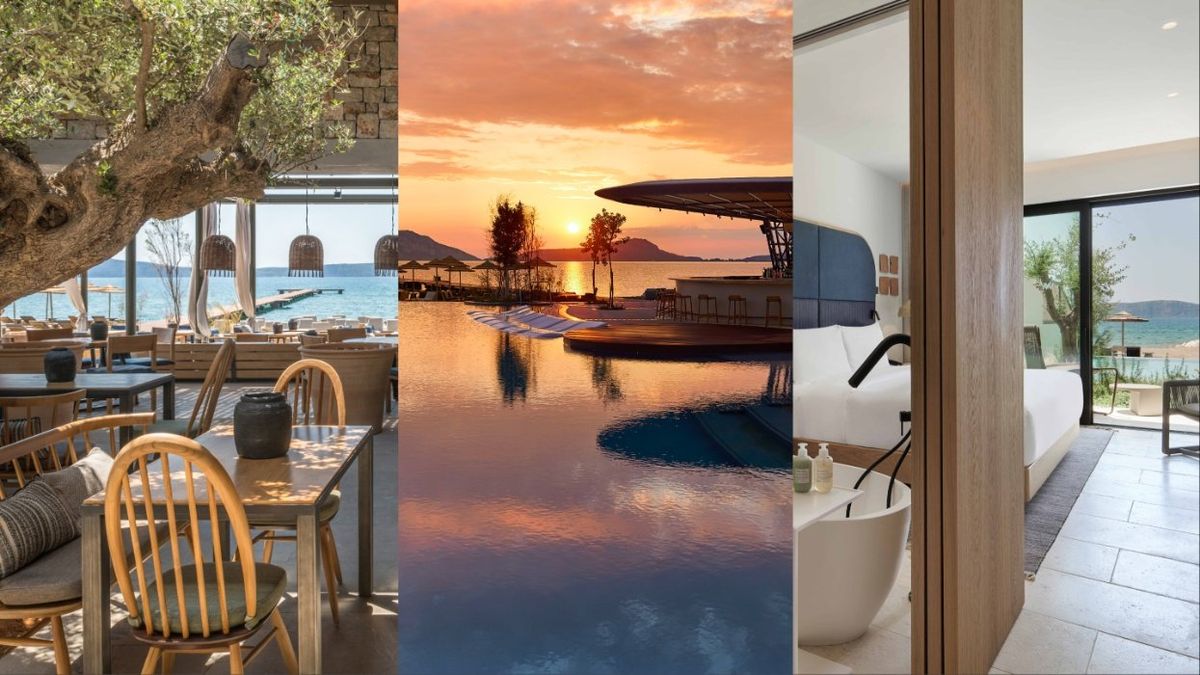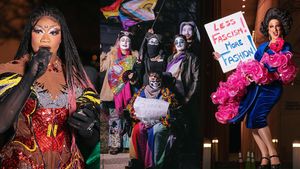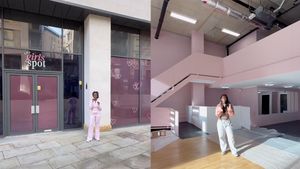All Rights reserved
By continuing to use our site, you agree to our Private Policy and Terms of Use.
by Raphael Kadushin
Every city has at least two faces and Berlin exemplifies that split. There is the classic, traditional Berlin, all Weimar meets Isherwood glam, and the edgy post-wall upstart always hungry for something new. It's easy to skip between the two cities if you want to sample the full Berlin experience and you should.
A quick guide to that skip :
A—Traditional Berlin
Stay: The Hotel Adlon Kempinski. The Adlon is the kind of grande dame hotel that never rests on its considerable laurels. It could if it was being lazy. Sitting in the city's prime position, right next to the Brandenburg Gate and at the foot of the Unter den Linden Boulevard, Berlin's answer to the Champs-Elysees (and maybe the most poetically named street in the world), the hotel has been the local VIP retreat since it opened in 1907. But constantly refreshed, and largely rebuilt after an epic fire, the property continues to offer the best of both an Old and New World experience. The sense of refined mittel Euro, Wes Anderson–worthy gentility is evident immediately, in the troops of bellboys in capes and pillbox hats, the solicitous check-in clerks who know your name, the long concierge counter, and the the kind of cosseted care you're never going to find in some pop-up boutique property. Add to all that the rooms that eschew slapdash hip for silk fabrics and marble bathrooms, and a formal restaurant boasting two Michelin stars. But the fresh updates include a refurbished lobby lounge and bar, and a 9,000-square-foot spa, and the result is a hotel that's suddenly downright trendy again, matching the days when Marlene Dietrich swept through, and Michael Jackson dangled his son from an Adlon window. Granted some Nazis also checked in, but if you see any of their soulless ghosts, and you're a Jew like me, you can remind the assholes you're still standing, and they're not.
Eat: Another trendified restaurant opens up every other week in Berlin but the best stalwart is the 150-year-old Borchardt. The restaurant's interior is all neoclassical swank, from the towering columns to the wall mosaic of a Greek muse. But it's Borchardt's enduring menu that draws the city's insiders, who still fill the dining room every night. Forget every passing food trend. The signature dish is a wiener schnitzel, wearing a crispy coat of batter, so big its sides flop over the side of the plate. The only thing better: a seasonal roast goose that is flat-out Dickensian.
Shop: The Kaufhaus des Westens, known locally as the KaDeWe, is the largest department store in Europe, after Harrods, and a Berliner's point of pride. Its men's floor carries every label, from Prada to Dries Van Noten, but it's the penthouse, epic gourmet food hall that's the real draw. Granted the hot-food selection has nothing on Selfridges. But the hall's ode to every brand of European chocolate, a German weakness, sets its own kind of high sugar bar. If you snag nothing more than a box of Niederegger nougats it's worth the trip.
B—Post-Modern Berlin
Stay: There are hipper hotels but the best of the contempo bunch is the Ellington Hotel Berlin, housed in a building that can boast its own long pedigreed history before it was recently refurbished as a hotel. Dating to the swinging 20s, the landmark Bauhaus property was famous as a dance hall and jazz club hosting everyone from Duke Ellington (hence the hotel's name) to Ella Fitzgerald and later David Bowie. The airy Bauhaus bones of the building have been retained but the guest-rooms are pure understated minimalism, a soothing mix of hard wood floors, white-washed walls, and integrated semi-open bathrooms. There is an obligatory fitness room, a Dukes restaurant, and a welcoming lounge and bar but what really lifts the hotel is its homage to its own past. There are live jazz brunches on Sunday, and during summer months in the courtyard, and jazz radio is broadcast daily from a glass studio in the hotel lounge.
Eat: Where to start? Berlin's embrace of global, pan-everything cuisine is exemplified by two recently opened restaurants. Israeli master chef Meir Adoni's Layla features a very buzzy bar, as well as the best of his signature dishes, including a massive Jerusalem bagel and an eggplant carpaccio roused by dates, tahini, and pistachios. Another recent contender is 893 Ryotei. Hidden behind a facade scrawled with graffiti the restaurant, anchored by a long sushi bar, is all Zen-like tranquility inside. While the sashimi taquitos are fun (think tuna wrapped up in a baby tortilla with truffle mayo) the thing to splurge on is the supernal sushi, including a salmon belly aburi.
Shop: Though there are trending neighborhood contenders for the title of Berlin's capital of hip, Kreuzberg, the city's long-standing answer to Williamsburg, continues to sprout the quirkiest boutiques. Among the best is Dandy Horse Berlin, a vintage store and, why not?, tattoo parlor that stocks everything from vintage bikes to Versace gowns.


























































































Exclusive: Lady Bunny releases new 'Hot To Blow' video